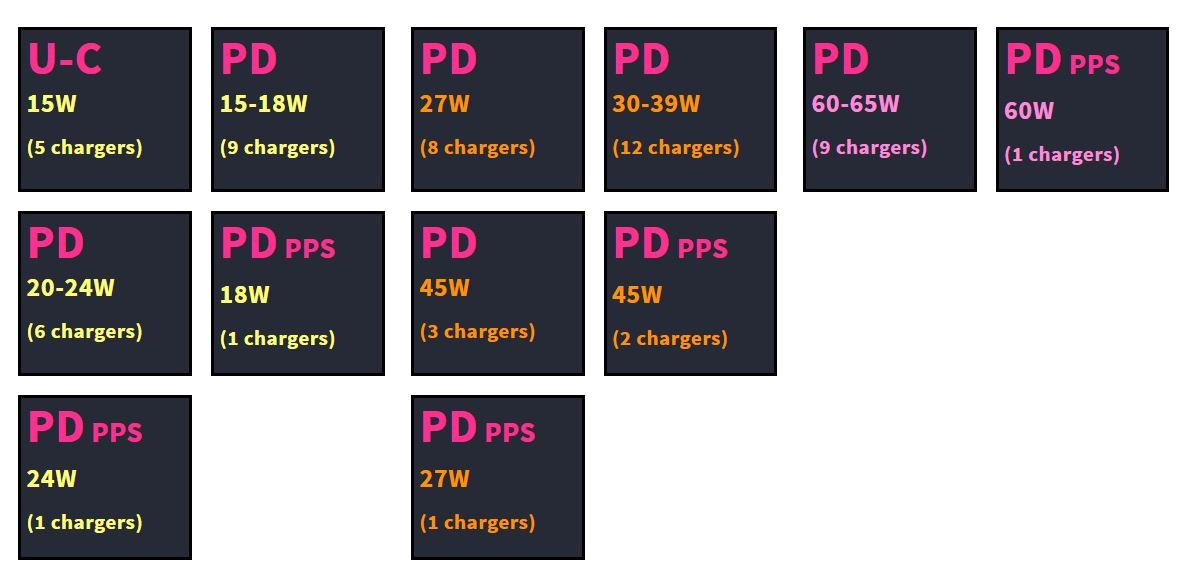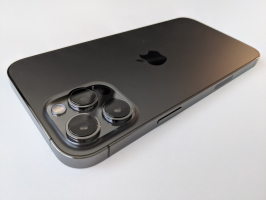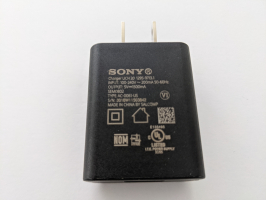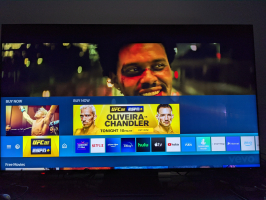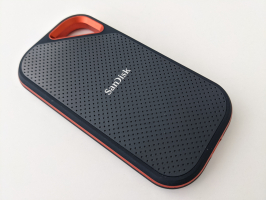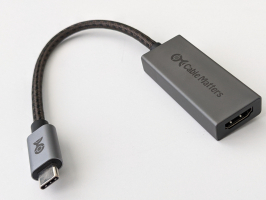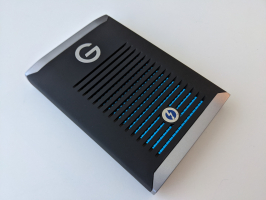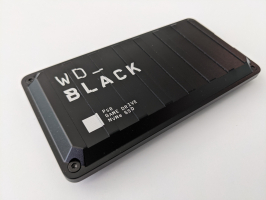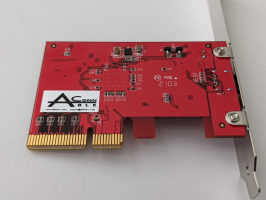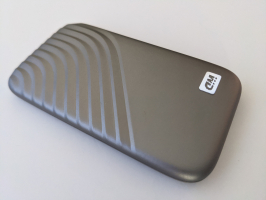Charging Technology Speed Performance Benchmarking
Chargers and Power Banks
Headphone & Speakers
Cases & Covers
Virtual Reality
Cables & Adapters
Media Player
Laptop
Tablet
Desktop
Cell Phone
Printers & Copiers
Memory Cards
TV
Computer Display
Game Console
Smart Home
Wearable Technology
Photo & Video Camera
Car Electronics
Car
Networking Equipment
Smart Toys
Home Audio & Video
Professional & Industrial
Storage Drive
Docking Station
Game Console Controllers
Set-top box
Keyboard, Mice, & Stylus
Portable Music Player
Computer Parts & Components
Cordless & Speakerphones
Projector
Software
Reporting
45W PD3 Car Charger
by Energear







Interested in this product?
Energear Premieres Own USB Power Delivery 3.0 Car Charger with the 45W PD3 Car Charger

The 45W PD3 Car Charger is the first USB Power Delivery 3.0 car charger sold by Energear in its USB Type-C car charger product selection. The Energear 45W PD3 Car Charger can take advantage of USB Power Delivery 3.0 based PPS (Programmable Power Supply) and Augmented PDO's to rapidly charge phones that support PPS like the Xiaomi Mi 8 as well as notebooks and tablets through the DC power outlet of your car.
USB Power Delivery 3.0 also addresses compatibility with other phones that support non-PPS Power Delivery like the Apple iPhone XS Max or Android phones such as Google's Pixel 3 XL and the Samsung Galaxy S9+. The Energear 45W PD3 Car Charger allows max 45 watts output through USB Power Delivery using fixed PDO's (Power Delivery Objects) of 15 watts (5 volts @ 3 amps), 27 watts (9 volts @ 3 amps), 45 watts (15 volts @ 3 amps) and 45 watts (20 volts @ 2.25 amps) as well as variable power of 9.9-33 watts (3.3~11 volts @ 3 amps) and 9.9-48 watts (3.3~16 volts @ 3 amps) power profiles. 45 watts is also sufficient to charge even tablets and notebook computers like Apple's 11-inch iPad Pro (2018) and MacBook 12" Retina 2017 or the Dell XPS 13 9370 and the Google Pixelbook.
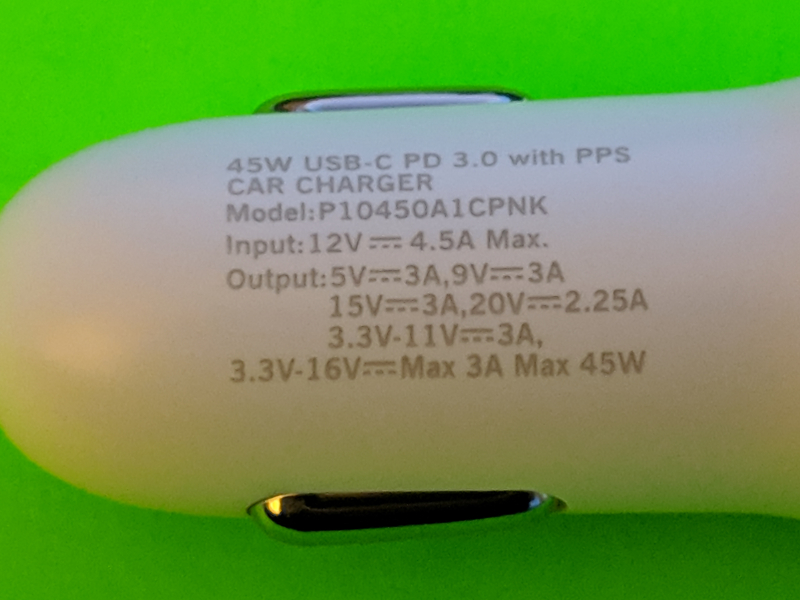
The Energear 45W PD3 Car Charger shows that it has been certified by USB-IF through the certification logo on its product page although not explicitly stated on its packaging.
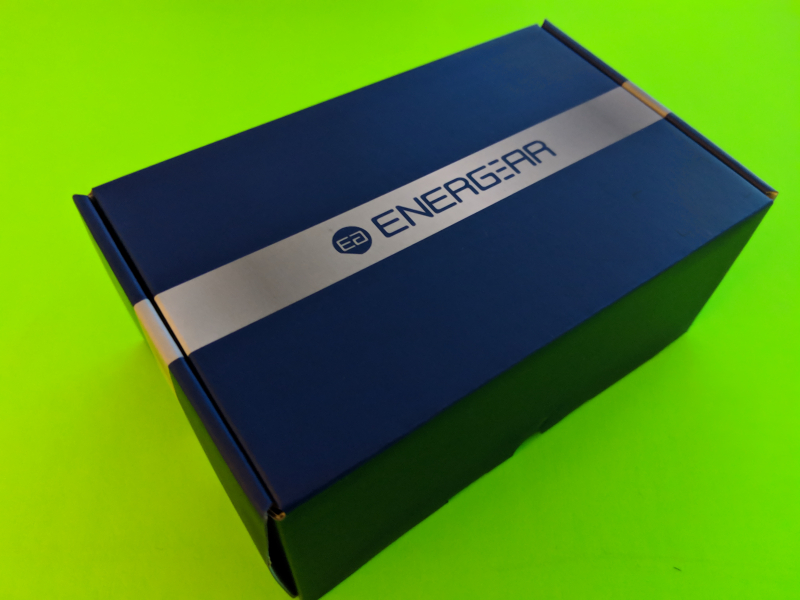
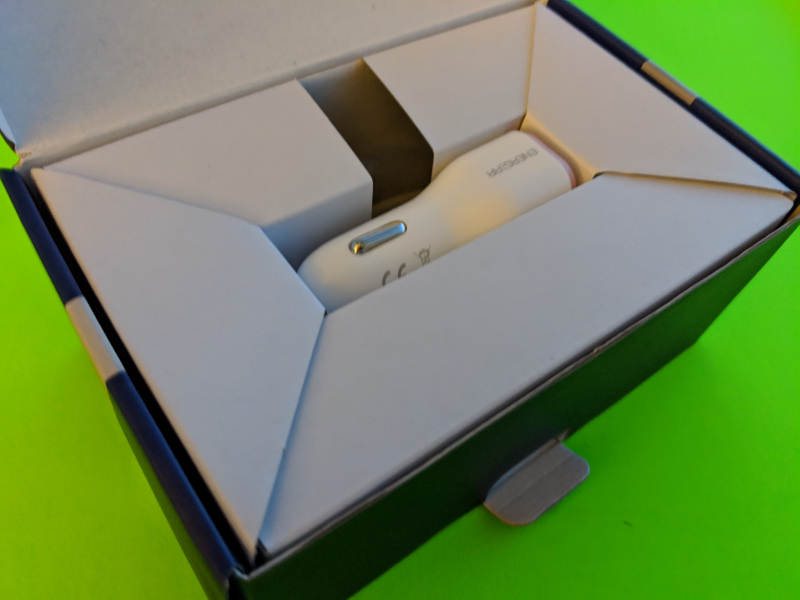
The Energear 45W PD3 Car Charger comes with a separate USB Type-C cable, saving you the hassle of purchasing or reusing your own cable with the charger. You can also use a USB Type-C to Type-A cable if you want to charge non USB Power Delivery capable devices like the Huawei P9 phone or any other standard smartphones and tablets.
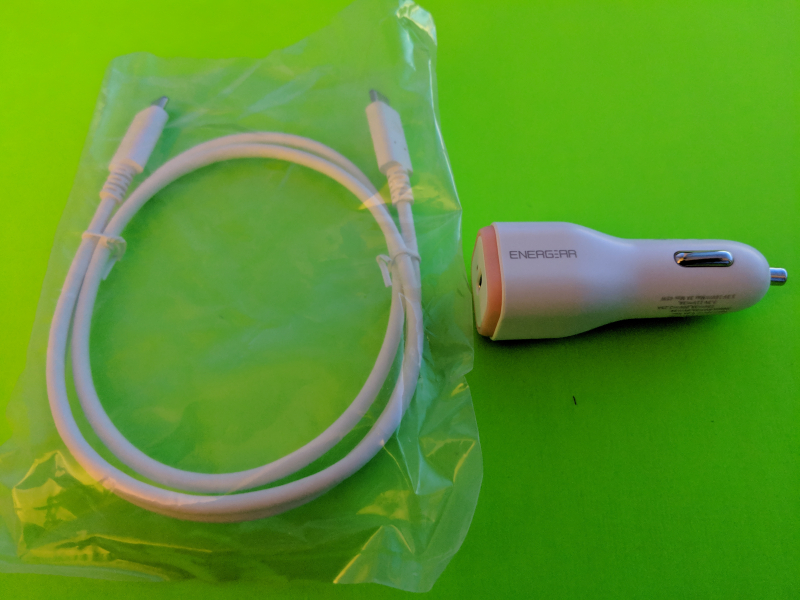
The charger comes in pink and gold variants that you can conveniently use to connect to Type-C devices for quick charge up inside the car.
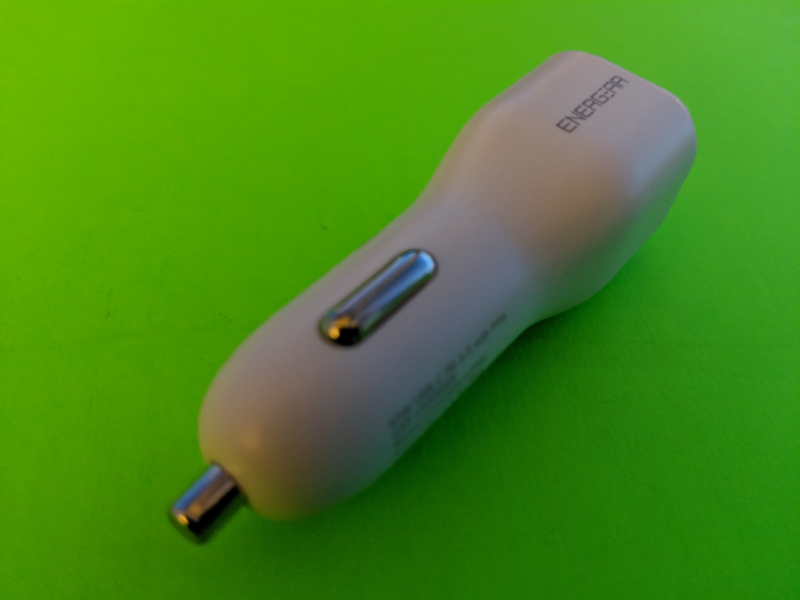
To find out the power capabilities of the Energear 45W PD3 Car Charger, we used the USB Power Test App from Granite River Labs with the Granite River Labs USB Power Delivery Compliance C2 Tester to produce the following test results.
The USB Power Test App first negotiates a power contract for every PDO supported by the Energear 45W PD3 Car Charger, and increases the load gradually to find the threshold where over current protection (OCP) kicks in and voltage and current start to drop for safety reasons. However the charger is not able to recover from 12V PDO OCP and not able to negotiate the next PD contract at 15V. The charger needs to be removed from the DC power and plugged back in in order to reset and be able to negotiate USB PD contracts.
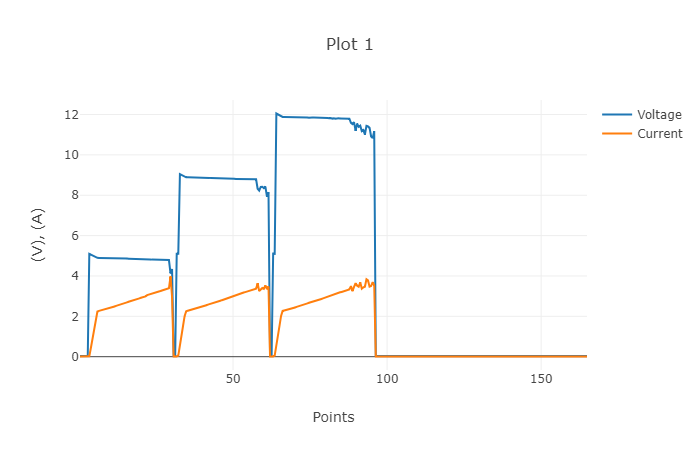
The USB Power Test App then reports out the fixed PDO's supported by the Energear charger up to 12V and their OCP thresholds. Note for some reason the 36 watts (12 volts @ 3 amps) power profile is not listed in the charger's specs.
| PDO | OCP (A) | %OCP |
|---|---|---|
| PDO#1 Fixed: 5V 3A | 3.97 | 132.4% |
| PDO#2 Fixed: 9V 3A | 3.87 | 129% |
| PDO#3 Fixed: 12V 3A | 3.9 | 130.1% |
The USB Power Test App from Granite River Labs takes this data to produce an I-V curve which graphically shows the relationship between voltage and current for each PDO. There is some voltage instability when the current approaches the OCP trigger point for each PDO.
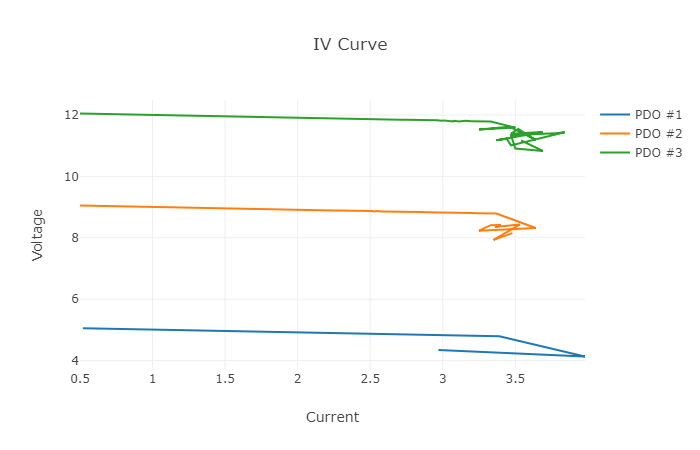
We then repeated OCP testing for the rest of the 15V and 20V fixed PDO's supported by the Energear 45W PD3 Car Charger but found that the charger had issues at 20V PDO OCP where the charger was observed to drop current below max 2.25A resulting in a lower OCP threshold.
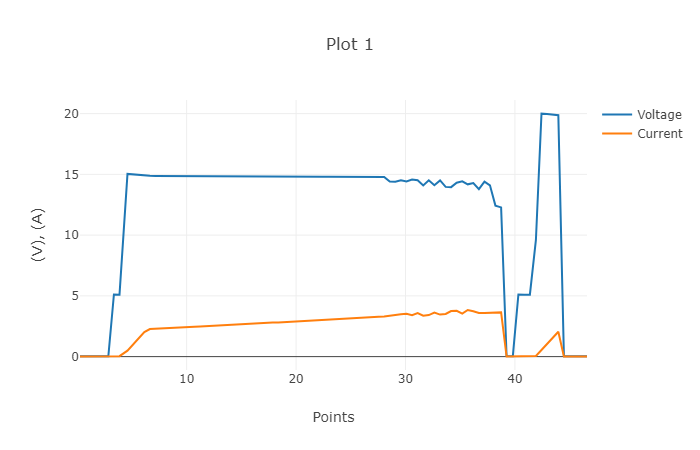
| PDO | OCP (A) | %OCP |
|---|---|---|
| PDO#4 Fixed: 15V 3A | 3.91 | 130.4% |
| PDO#5 Fixed: 20V 2.25A | 2.05 | 91% |
From the I-V curve, we can observe current fold-back behavior as well as voltage instability when the current approaches the OCP trigger point for the 15V PDO, while the 20V PDO shows the voltage immediately shuts off when crossing the OCP threshold which is lower than the max 2.25A that the charger supports.
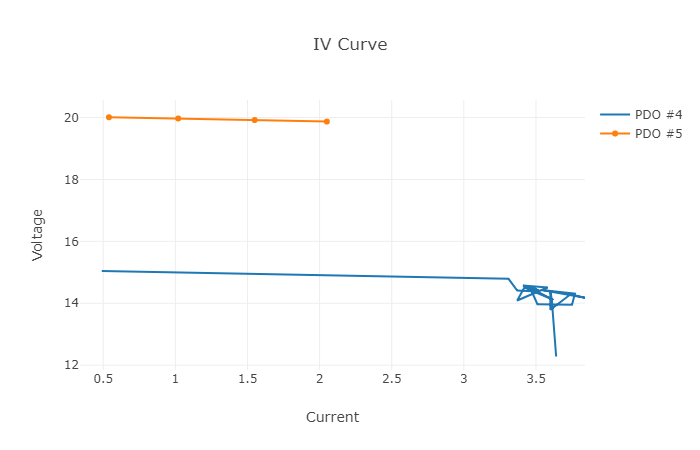
Using the USB Power Delivery Compliance C2 Tester from Granite River Labs to run just a subset of the full USB Power Delivery compliance test suite, some compliance failures were observed for the Energear 45W PD3 Car Charger despite claiming to be USB-IF certified.
USB-IF High Level Mapping Summary
Sl No
|
Test Category
|
Test Group Description
|
Test Result
|
|---|---|---|---|
1
|
PHY_PRIMARY_TX
|
BMC Physical Layer Transmitter
|
PASS
|
2
|
PHY_PRIMARY_RX
|
BMC Physical Layer Receiver
|
FAIL
|
3
|
PHY_PRIMARY_MISC
|
BMC Physical Layer Miscellaneous
|
PASS
|
4
|
PROT_PRIMARY
|
Protocol Specific Primary
|
FAIL
|
5
|
POWER_PRIMARY
|
Power Source/Sink Primary
|
PASS
|
Result Summary
Sl No
|
Test ID
|
Test Name
|
Test Result
|
|---|---|---|---|
1
|
TDA.2.1.1.1
|
TDA.2.1.1.1 BMC PHY TX EYE
|
PASS
|
2
|
TDA.2.1.1.2
|
TDA.2.1.1.2 BMC PHY TX BIT
|
PASS
|
3
|
TDA.2.1.2.2
|
TDA.2.1.2.2 BMC PHY RX INT REJ
|
PASS
|
4
|
TDA.2.1.2.1
|
TDA.2.1.2.1 BMC PHY RX BUSIDL
|
FAIL
|
5
|
TDA.2.1.3.1
|
TDA.2.1.3.1 BMC PHY TERM
|
PASS
|
7
|
TDA.2.2.1
|
TDA.2.2.1 BMC PROT SEQ GETCAPS
|
PASS
|
8
|
TDA.2.2.2.1
|
TDA.2.2.2.1 BMC PROT SEQ CHKCAP P PC
|
FAIL
|
9
|
TDA.2.2.2.2
|
TDA.2.2.2.2 BMC PROT SEQ CHKCAP NOMARK P PC
|
PASS
|
13
|
TDA.2.2.7
|
TDA.2.2.7 BMC PROT BIST NOT 5V SRC
|
PASS
|
15
|
TDA.2.2.9
|
TDA.2.2.9 BMC PROT GSC REC
|
PASS
|
16
|
TDA.2.3.1.1
|
TDA.2.3.1.1 POW SRC LOAD P PC
|
PASS
|
17
|
TDA.2.3.2.1
|
TDA.2.3.2.1 POW SRC TRANS P PC
|
PASS
|
BMC Eye Diagram
View Full Article
USB PD PPS Charging Technologies & Battery Life Benchmarking
Featured Products
 GTrusted
GTrusted



